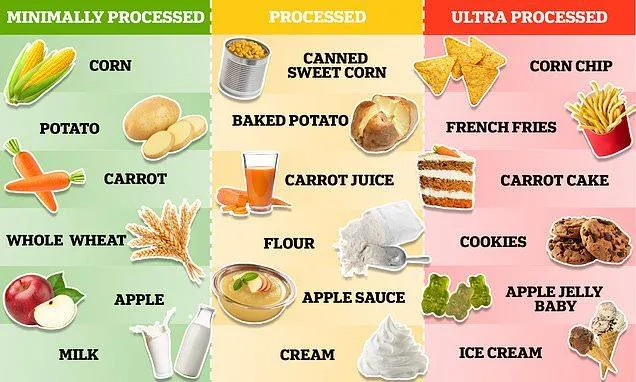
The Weight-Loss Advantage Hiding in Plain Sight
Is it the change of seasons?
I don't know what's motivating people to get serious about losing weight lately, but it's been exciting to see the changes people are making--especially my friend who's lost 83 pounds so far!
If you're looking to drop a few pounds, this tip might help:
Eat more minimally processed foods.
Researchers compared two diets—one built on minimally processed foods like chicken, pasta, fruits, and vegetables, and the other made up of ultraprocessed foods such as whole grain cereals, protein bars, shakes, flavored yogurt, and frozen lasagna.
Half of the study participants followed the minimally processed diet for 2 months, returned to their normal diets for 1 month, then followed the ultraprocessed diet for 2 months.
The other half followed the diets in the opposite order. Everyone was allowed to eat as much or as little as they wanted.
Both diets kept added sugars, sodium, and saturated fats in check, so the difference wasn’t about junk food versus health food. It was about how processed the foods were.
The results....?
On the minimally processed diet, participants lost about 4 pounds in 2 months.
On the ultraprocessed diet, they lost about 2 pounds in 2 months.
They also lost twice as much body fat with the minimally processed approach.
Over a year, that difference could add up to 9–13% of body weight vs. just 4–5%.
Researchers believe the difference can be attributed to:
Calories per bite: Minimally processed foods are usually less calorie-dense. A bowl of whole oats and fruit delivers fewer calories than many of the breakfast smoothies people are making.
Chewing and fullness: Whole foods take more effort to chew and digest, which slows eating and gives your body more time to feel full. Ultraprocessed foods are essentially pre-chewed!
Craving control: Participants reported fewer food cravings and less "food noise” on the minimally processed diet, leading them to eat only when they were hungry.
People did lose some weight on the ultraprocessed diet, probably because the foods in the study were healthier than their usual fare. But the minimally processed foods gave them a clear advantage.
Ultraprocessed foods can be hard to resist. They're convenient, tasty, and often cheaper.
Shoot, I paid $3 for 2 not-so-great peaches last week!
Remember that food manufacturers intentionally make their products irresistible, from adding salt, sugar, and artificial flavors and colors to adding protein to everything from water to popcorn.
Small swaps can make a big difference:
Whole oats with berries instead of instant flavored packets.
A home-cooked stir-fry with chicken and vegetables instead of frozen entrees.
Plain yogurt with your own fruit added instead of pre-flavored cups.
Your body seems to respond differently when you keep things simple.
The more meals you can build from fresh, whole ingredients, the more likely you are to control your appetite, lose weight, and keep it off!